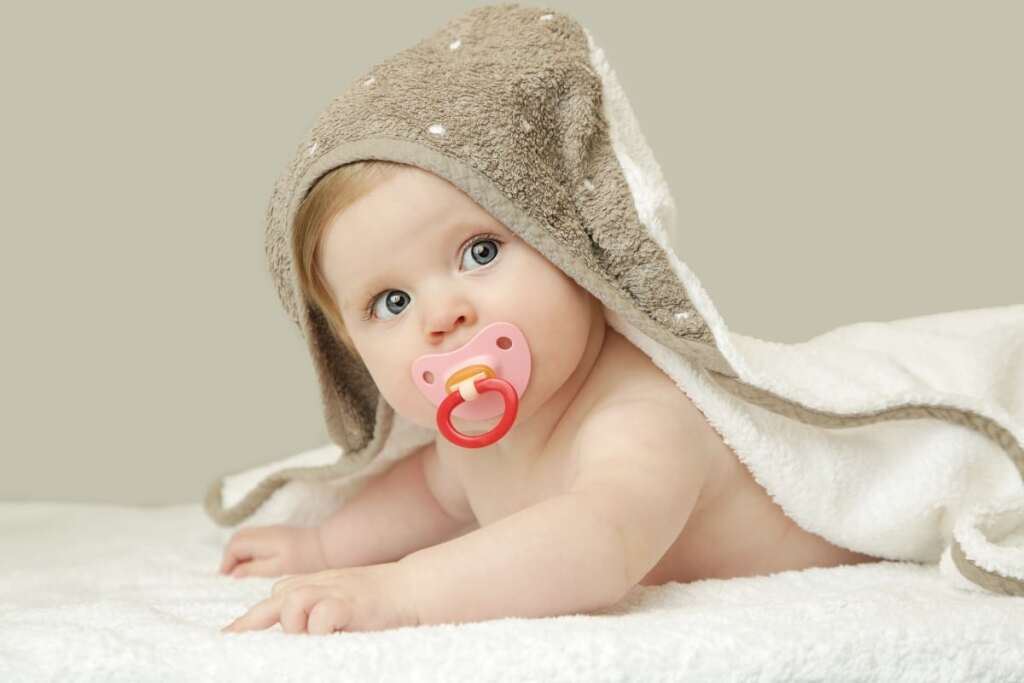
Thumb-sucking and pacifier use are natural self-soothing habits in infants and toddlers.
They offer comfort, promote better sleep, and help children cope with stress or boredom.
But when these habits continue too long, they can start to affect your child’s oral health. Let’s explore the pros, cons, and smart ways to help your child wean 🧠
🍼 Why Do Babies Suck Their Thumbs or Use Pacifiers?
Babies are born with a strong sucking reflex — essential for feeding and comfort.
Pacifiers and thumbs become tools for:
- Self-soothing
- Falling asleep
- Coping with anxiety or unfamiliar environments
Most children naturally stop by age 2–4. But when it goes beyond this age, intervention may be needed to prevent dental problems.
🦷 Effects of Prolonged Thumb-Sucking and Pacifier Use
Short-term use is usually harmless, but extended habits can lead to:
1. Misalignment of Teeth (Malocclusion)
- Open bite – Front teeth don’t touch when biting down
- Overbite – Upper teeth stick out over lower teeth
- Crossbite – Teeth don’t align properly when biting
2. Jaw and Palate Development Changes
Constant pressure can reshape the jaw and upper palate, possibly requiring orthodontic correction later.
3. Speech Problems
Thumb-sucking or pacifiers may interfere with tongue placement, leading to lisping or unclear speech.
4. Cavities and Tooth Decay
Sucking habits can introduce bacteria, especially if pacifiers are dipped in sugary liquids.
🚨 When Should You Be Concerned?
You might want to take action if:
- The habit continues past age 4 or 5
- There are visible changes in the teeth or jaw alignment
- Your child struggles with speech clarity
- Attempts to stop have not worked
💡 How to Help Your Child Stop Thumb-Sucking or Pacifier Use
Breaking these habits takes gentle, consistent steps. Here are some proven techniques:
1. Gradual Reduction
Limit the use to naps and bedtime, then slowly reduce further.
2. Positive Reinforcement
Celebrate small wins 🏆 Use a sticker chart, rewards, or extra praise when they go without sucking.
3. Identify Triggers
Notice when they suck (boredom, stress, tiredness) and offer a comfort item or activity instead.
4. Substitute with Comfort Objects
A favorite blanket or stuffed animal can ease anxiety without harming oral health.
5. Gentle Reminders
Use a thumb guard, bandage, or playful reminders — not shame. Involve your child in the decision!
6. Consult a Pediatric Dentist
If the habit is stubborn or has already caused changes, a dentist can help with tailored advice and dental evaluations.
❓ FAQs
1. Is thumb-sucking normal in infants?
Yes, it’s a natural reflex. Most kids outgrow it between ages 2 and 4.
2. When should I be concerned?
If it continues past age 4–5 or causes visible dental or speech issues, seek guidance.
3. Which is worse — thumb or pacifier?
Pacifiers are easier to control and take away. Thumb-sucking can be harder to break.
4. How do I help my child stop?
Use gentle weaning, praise, comfort substitutes, and dentist support if needed.
5. Can it cause permanent damage?
Yes — long-term sucking may lead to tooth misalignment, jaw issues, and speech delays.
6. When should pacifiers be weaned off?
AAP suggests weaning between 6–12 months to minimize risks.
7. Will it affect baby teeth?
Prolonged use can cause open bite, overbite, and changes to jaw shape.
8. How do I transition away from pacifiers?
Start by limiting use, introduce comfort items, and use positive encouragement.
🦷 Final Thoughts
Thumb-sucking and pacifier use are normal and comforting in early life.
But as your child grows, it’s important to gently guide them away from these habits to protect their smile.
With patience, love, and a little creativity, you can help them build healthy oral habits that last a lifetime 🪥💖